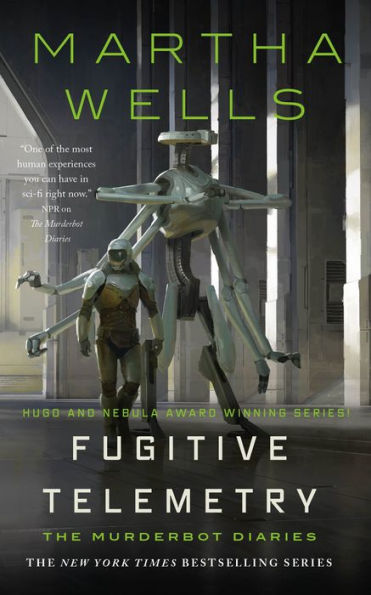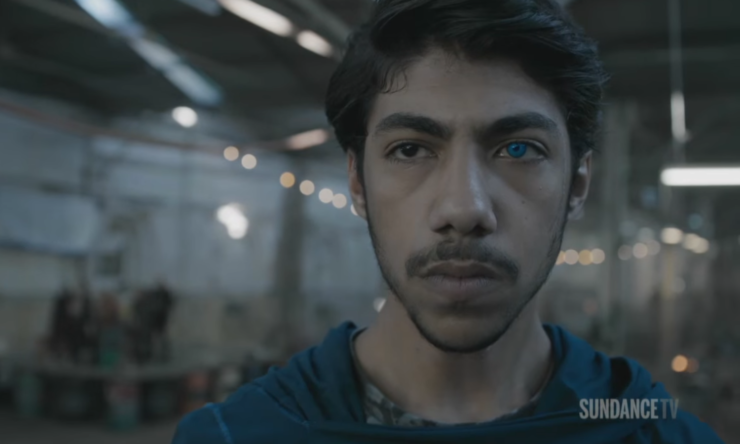There are hundreds of Westerns, but virtually none which center Native American stories or perspectives. Some movies, like John Ford’s The Searchers (1956) or the Kevin Costner vehicle Dances With Wolves (1990), acknowledge the history of violence against Indigenous people, and include native characters or storylines. But these films still feature white stars, and view native people primarily through white eyes. This is so consistent, and so ubiquitous, that the Western as a genre could even be defined as narratives about the American West presented from the point of view of colonizers.
Space westerns have a more abstract relationship to the actual American West, but the tropes are much the same. The Mandalorian and Star Trek ask viewers to identify with explorers and pioneers, not with the explored and pioneered. Movies like Outland are as white as their Western predecessors, set in a landscape pre-emptied of Indigenous people. There are only white people in space—just as, in Westerns, there are often, counter-historically, only white people in America.
The 2016-2017 Australian independent television series Cleverman isn’t an exception to the colonial perspective of space Westerns, primarily because it isn’t a Western. Instead, it can be seen as a kind of anti-Western. By focusing on the stories of Indigenous people, it turns Western genre pleasures inside-out—and shows why those pleasures are only possible when you strap on the colonizer’s gunbelt.
Cleverman is a quasi-superhero narrative set in a future dystopia in which an Aboriginal race, the fur-covered, superstrong Hairypeople, live in uneasy coexistence with humans. Most Hairypeople are confined to a ghettoized neighborhood called the Zone, which is heavily policed by patrols and high-tech surveillance equipment. The hero of the series is a half-Gumbaynggirr man named Koen West (Hunter Page-Lockhard) who discovers that he has the invulnerability and powers of the Cleverman. He tries to use his abilities to protect the Hairypeople from their human oppressors and to thwart his ambitious, envious brother Waruu (Rob Collins.)
It’s not surprising that Cleverman never became a hit series. Creator Ryan Griffin used Aboriginal legends and stories as inspiration, and while the mythology is fascinating, it strikes less of a chord with international audiences than more instantly familiar, corporate superheroes or the ubiquitous iconography of Westerns. Its determination to be true to Indigenous experience made it virtually impossible for the series to reach a truly mass audience.
Buy the Book


Fugitive Telemetry
Cleverman is also just a bleak, downbeat show. The Hairypeople lived on the land before humans came, but now they are hemmed in, pinned down, imprisoned and hounded to death. Like actual Indigenous people, the Hairypeople are penned into squalid reservations, thrown into prisons, and trafficked into brothels. The humans demand they abandon their culture and their powers; one of the only ways out of the Zone for the Hairypeople is for them to agree to be injected with a formula that robs them of their fur and their strength. The Zone is crowded and miserable, but if the Hairypeople try to move into property outside the Zone, they are arrested.
Watching Cleverman can be an intense, difficult, and claustrophobic experience. The Hairypeople are penned in both by walls and by history. The show is science fiction, but reality clutches at the narrative like fingers around a throat. The humiliations and the violence that the Hairypeople suffer all have real-life precedents. Colonizers kill children; they put people in prison and beat them; they rape. The experience of colonization is an experience of restriction: The Hairypeople’s lives are a shrinking circle. They are being crushed out of existence.
Colonization means constriction for the Hairypeople. But for their tormentors, it means freedom, and more room to expand. This is most obvious in the storyline of Jarrod Slade (Iain Glen), a wealthy white Australian who is studying the Hairypeople in order to appropriate their powers for himself. He manages to create a serum which gives him Hairypeople strength, endurance, and speed, allowing him to leap across the Sydney cityscape with exuberant glee.
Again, this isn’t a Western. But Slade stepping on Indigenous people to boost his way into his own freedom and self-actualization is nonetheless an instructive dynamic. The allure of the Western, and the space western, is a sense of freedom and power—of breaking out of the dreary, normal, everyday grind of mundane business and lighting out for the territories. The Starship Enterprise or Millennium Falcon zipping across the screen has the same allure as Clint Eastwood riding off into the sunset. The joy is in the feeling that you’re headed somewhere new and big and empty, where rules do not apply. Like the tourists in Michael Crichton’s Westworld, fans of the Western get to take pleasure in a fantasy of shooting and screwing and swaggering with no consequences and no restrictions.
Cleverman is a valuable reminder, though, that opening up the frontier for one person often means closing it down for someone else. You can ride where you will in that vast and empty landscape only because someone forcibly emptied it out, and tossed its original inhabitants into the Zone. John Wayne and Han Solo and Captain Kirk are indomitable and larger than life for the same reason that Slade is: They’ve stolen someone else’s spirit, and injected it into their own veins.
This isn’t to say that Westerns aren’t fun. It’s to say the opposite. Westerns, and space westerns, are really fun! Freedom, empowerment, discovery, shooting the bad guys down: those are enjoyable fantasies. People like them, and for good reason. But it’s sometimes worth considering what’s left out of a genre as well as what’s in it, and to think about what truths we clear away when we make room to enjoy ourselves. A space western that really centered and gave weight to Indigenous experiences wouldn’t be a space western anymore. Instead, like Cleverman, it might be a dystopia.
Noah Berlatsky is the author of Wonder Woman: Bondage and Feminism in the Marston/Peter Comics (Rutgers University Press).










